Darker days lie ahead for Hong Kong
Weekday or weekend, Hong Kong has become a battleground with universities - erstwhile symbols of civility - turning into base camps and refuel stations. What is happening to the Hong Kong as we know it?
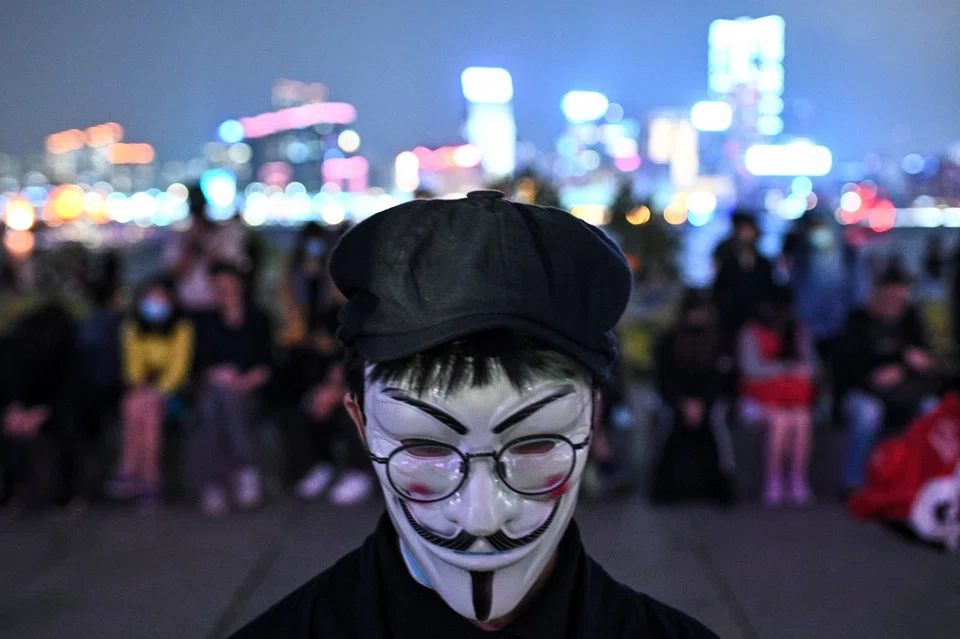
The case of Alex Chow Tsz-lok, an undergraduate from the Hong Kong University of Science and Technology who fell during the protests and died on 8 November, has once again added fuel to the fire of demonstrations that seemed to be subsiding. Protesters are not only trashing shopping malls and setting police stations ablaze, they are also disrupting the MTR system and creating multiple roadblocks that are paralysing the city. The roadblocks set up at the Central district seem to resemble a military formation: bricks scattered on the roads are bound by bamboo poles and tied to the fences by the roads. If any car attempts to force their way through them, the fences will fall, creating a domino effect, damaging all cars along the way. There is clearly a mastermind behind this clever set-up.
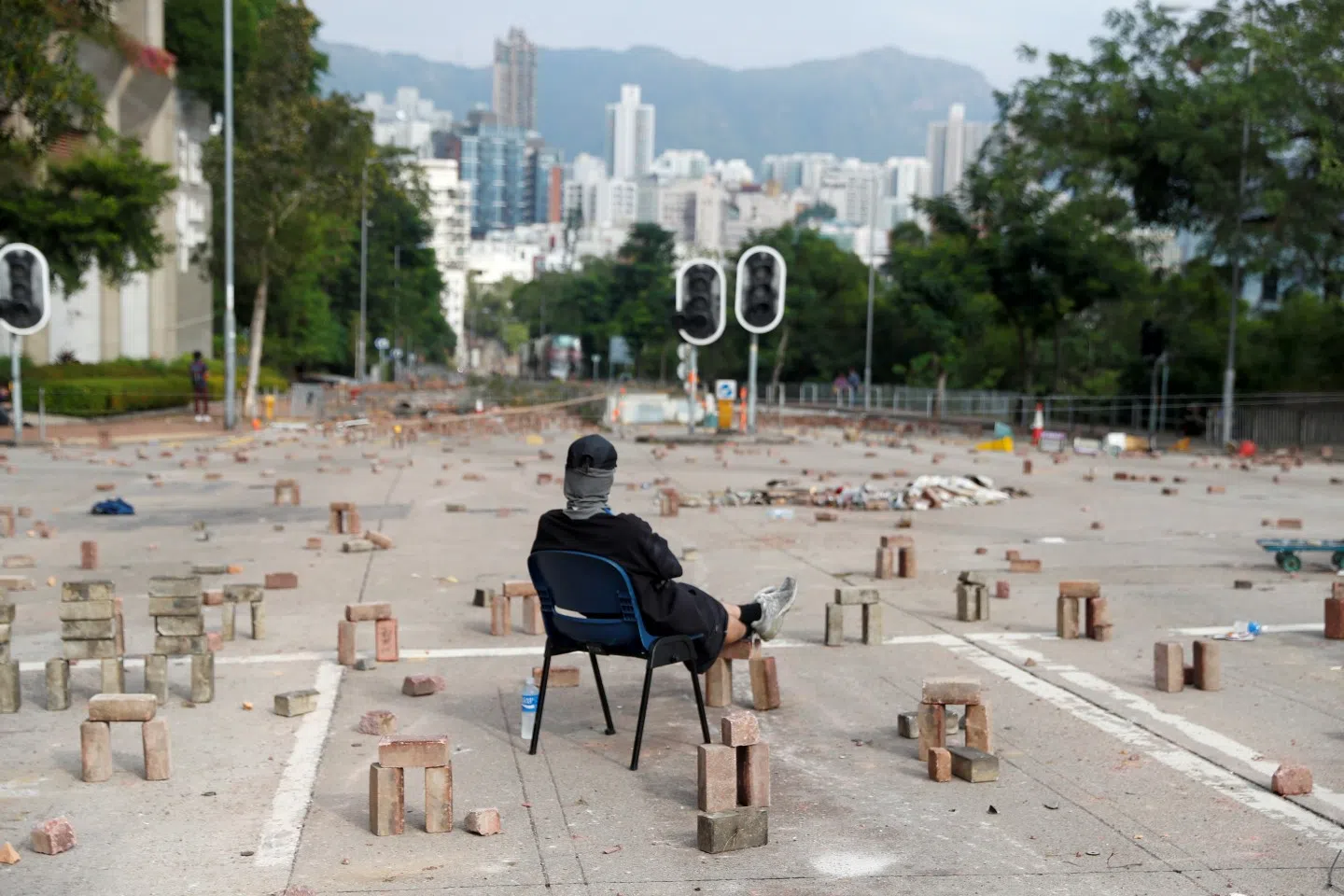
Currently, more than ten people are injured on a daily basis as a result of the violent clashes. A man was set ablaze on 11 November, resulting in burns on 30% of his body; a 70-year-old man passed away on 14 November after being hit on the head with a brick while he was clearing roadblocks; and major intersections near various universities have also been blocked.
University base camps
In a photo from the LIHKG forum (often referred to as Hong Kong's version of Reddit) that went viral, a sign reads "CU Customs" on the path to the Chinese University of Hong Kong (CUHK). Alongside, a masked man in full combat outfit stands guard with an anti-poison mask on his face and self-made weapons in his hands, effectively declaring that CUHK is officially usurped by protesters. This image bears an uncanny resemblance to a scene in The Dark Knight, where the rebel army took control over the government - young protesters are re-enacting a virtual scene and bringing it into reality.
Nobody knows who appointed or endorsed the black-shirted students with control over the campus, but the students were also quick to refute that the police are the ones who started this "terror" in the first place.
Online news has claimed that the CUHK has become a fortress for anti-government protesters, and this photo justifies the claim. Not only are various entrances of the university guarded by the "black shirts", campus buses and trucks have also been taken over by them. Drivers of these heavy vehicles are no longer licensed bus drivers or university staff. Resource stations have also been set up to collect and distribute materials and resources for the students to produce incendiary devices.
Over the past few days, it is not only the students from mainland China who have evacuated to Shenzhen to escape the chaos, but over 100 Taiwan students and approximately 80 Korean students also fled in a hurry. Nobody knows who appointed or endorsed the black-shirted students with control over the campus, but the students were also quick to refute that the police are the ones who started this "terror" in the first place.
Mayhem unchecked
In light of multiple regions lapsing into a state of anarchy, rumours of a possible curfew order became a hot topic yesterday. Multiple Hong Kong media reported that the Hong Kong Special Administrative Region (SAR) conducted a late-night emergency meeting on 13 November with its top officials and advisers to discuss if a curfew will be implemented. Mainland China's Global Times tweeted a first-hand news about a possible curfew order, only to delete it later. Matthew Cheung, Chief Secretary for Administration of the Hong Kong SAR, emphasised that the meeting was just a regular meeting, and the SAR has since officially dismissed rumours of a curfew order last night.
From the speeches of various members of the Pro-Beijing camp, the reason for the SAR's dismissal of a curfew order is apparent. Firstly, the SAR is worried that such an order will jeopardise Hong Kong's status as a global financial centre, triggering a domino effect that could result in stock market crashes, in turn setting off a chain of similar problems.
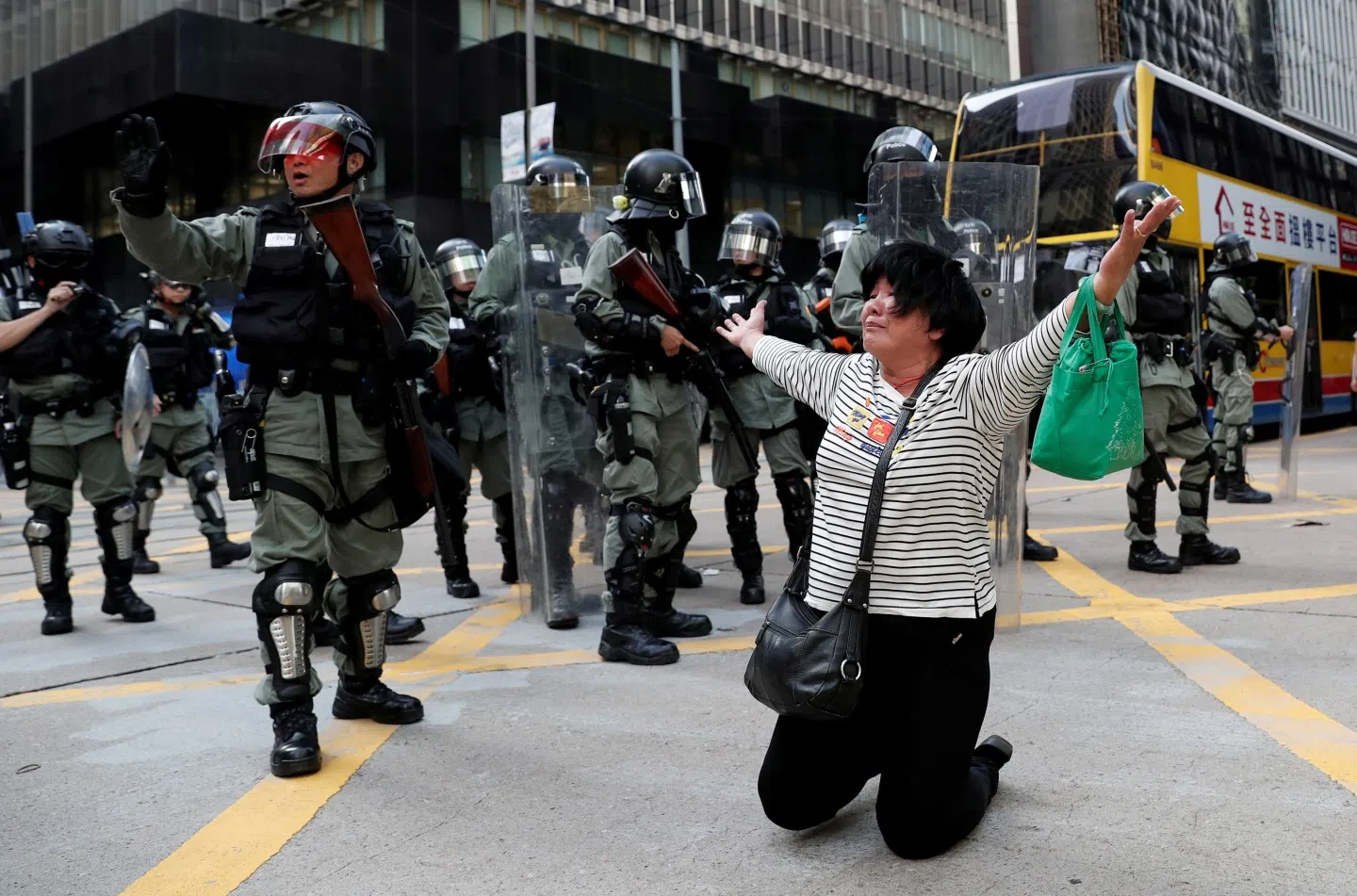
Also as important a reason is that implementing curfew requires massive support from the police force, which the Hong Kong police is unable to provide in its current state. Should a curfew be imposed, extreme protesters will definitely challenge it, forcing the SAR to employ even tougher measures against the protesters. This will result in more violent clashes and casualties, a consequence that the SAR is unable to bear. Neither will it dare to cancel the District Council election happening on 24 November. The Hong Kong SAR is unable to take action, worrying about the ripple effect that a single decision may bring about.
District Council election moves
John Tsang was once Carrie Lam's opponent in the 2017 Chief Executive election and former Financial Secretary of the Hong Kong SAR. On 12 November, he and a team of 125 former top officials and experts in various fields signed a petition urging the SAR to ensure a smooth execution of the impending District Council election to "show the heart of the people through their votes".
Hoping that the protests can naturally subside is wishful thinking.
This petition testifies to the complexity of Hong Kong's political reality and the intense political struggle among top officials. It is also a mark of Tsang's political influence. Among the 125 people who signed the petition were Anthony Cheung, former Transport and Housing Secretary, Joseph Wong, former Secretary for the Civil Service Bureau, and Professor Johannes Chan of The University of Hong Kong. According to Hong Kong media, Tsang was seen among the band of "black shirts" at the streets of Wan Chai on 13 November.
What do we make of the turmoil in Hong Kong? In actual fact, the fresh bout of protests that broke out following Alex Chow's death may purely be a chance occurrence, but it is not unexpected. Ever since the outbreak of clashes in mid-June, all signs point toward the fact that funding and resources for the demonstrations have not been cut - protesters are still making petrol bombs; various platforms producing propaganda materials are going strong; society is still full of resentment for the SAR; the extreme protester's ideology of a "stateless state" is present; hatred towards Beijing and resentment towards certain ethnic groups are still brewing and intensifying. Hoping that the protests can naturally subside is wishful thinking.
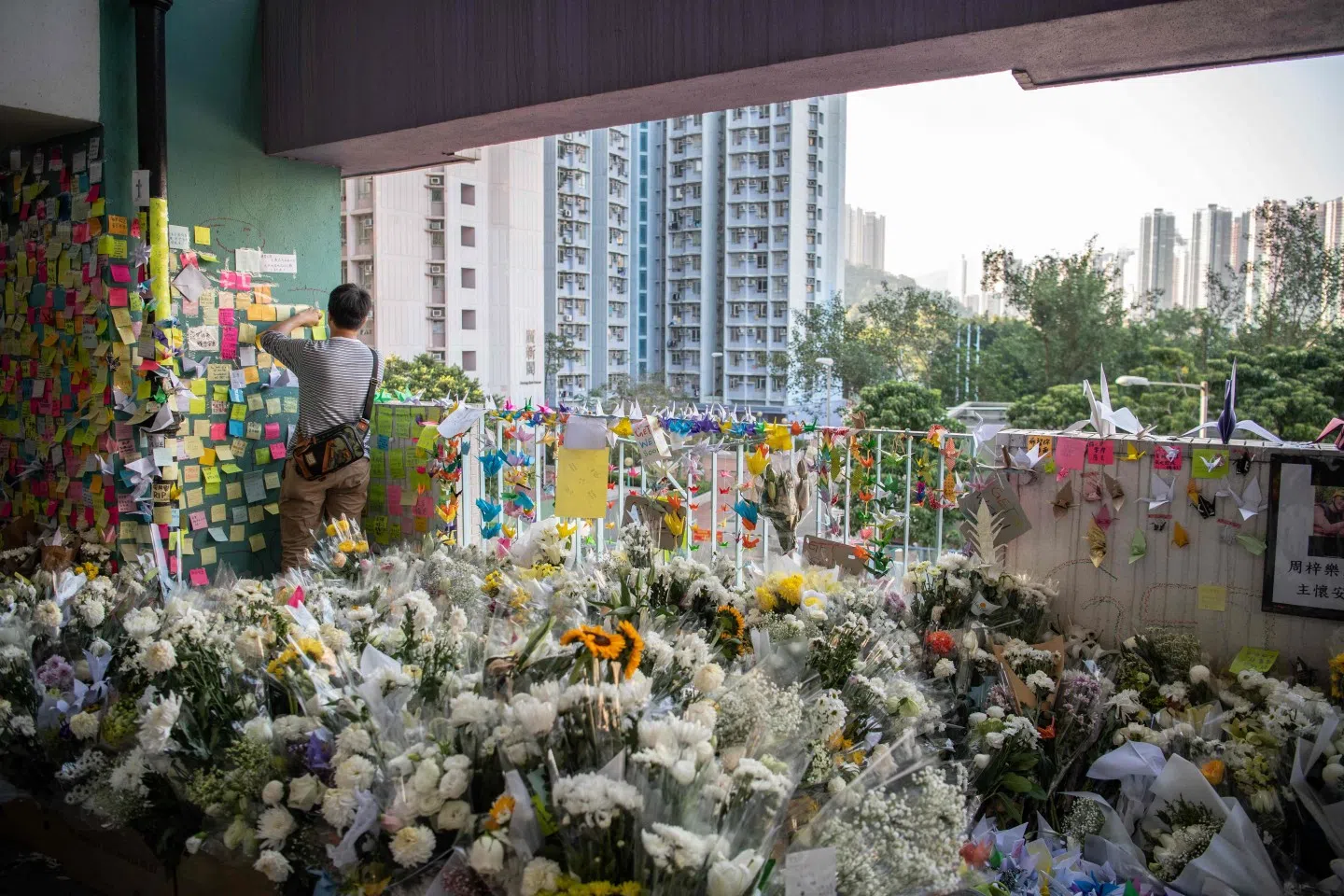
Over the past couple of days, apart from the protesters, innocent Hong Kongers are injured and some are even in a critical condition. Should protests persist, protesters with a "let's all die together" attitude will only resort to more violent means, such as the destruction of infrastructure like electrical and light rail systems, causing even more direct and widespread casualties. Last night, Beijing voiced its support for the SAR and its firm means of handling the situation and punishing the violent offenders. In other words, with the current non-interference of the Central Committee's military forces and the SAR's lack of concrete governance over the region, darker days lie ahead for Hong Kong.
Leung Man-tao on So begins the ENDgame
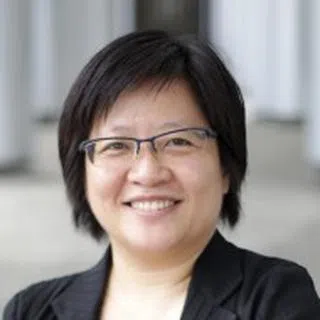

![[Big read] When the Arctic opens, what happens to Singapore?](https://cassette.sphdigital.com.sg/image/thinkchina/da65edebca34645c711c55e83e9877109b3c53847ebb1305573974651df1d13a)


